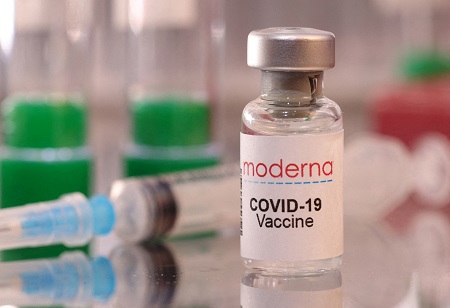India Pharma Outlook Team | Thursday, 16 February 2023

GlobalData, a data analytics firm, estimated that Moderna's mRNA-3927 is set to generate $278 million in 2028. Moderna recently confirmed that its Phase I/II study of candidate mRNA-3927 is moving forward. It also revealed that data from mRNA-3927 trials showed a decrease in the number of metabolic decompensation events (MDEs), and regulators appeared to be in favour of MDE as a primary endpoint for the study.
Furthermore, Moderna stated that all eligible participants in its study chose to participate in the Open Label Extension study. mRNA-3927 is one of five non-vaccine mRNA therapeutics currently in clinical trial development, according to GlobalData's Pharma Intelligence Center. The following are the other four non-vaccine mRNA therapeutics: LUNARGSD3/UX053 by Ultragenyx, targeting glycogen storage disorder type III, also known as Cori's Disease; mRNA-3705, Moderna's second candidate, for methylmalonic acidemia; and OTX-2002 by Omega Therapeutics, targeting hepatocellular carcinoma and solid tumours. Sarah Bundra, Analyst at GlobalData, commented on the development:
"Since mRNA vaccines proved effective in halting the spread of the COVID-19 pandemic, mRNA therapeutics have received increased attention and funding. Researchers are now investigating the use of mRNA therapeutics in other disease areas." According to GlobalData's analyst consensus forecast, OTX-2002 will have the highest revenue by 2028, with sales of $1.6 billion. Sales of all five candidates are expected to exceed $2 billion by 2028. mRNA is a single-stranded ribonucleic acid that is synthesised from a DNA strand. It contains the protein synthesis coding information.
The delivery of in vitro transcribed mRNA into a target cell, where cellular machinery can then translate the mRNA into a functional protein, is the basis of mRNA therapeutics. These proteins can aid the immune system in the prevention or treatment of certain diseases. A lack of propionyl-CoA carboxylase, which converts propionyl-CoA to methylmalonyl-CoA, causes propionic acidemia. The candidate from Moderna treats the condition by activating propionyl-coenzyme A carboxylase. "Propionic acidemia is a rare genetic disorder that can be fatal. If Moderna's mRNA-3927 therapy is successful, it will provide a potential solution for a patient population with few options "Bundra came to an end.